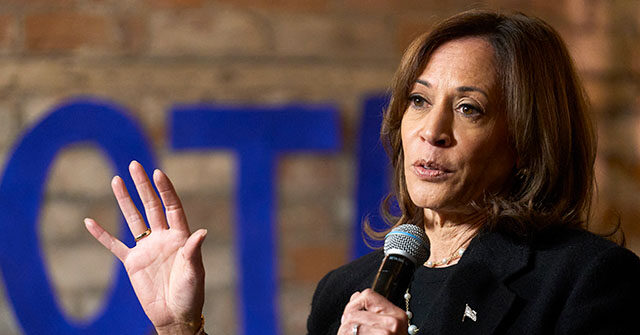In a recent interview with NBC News, Vice President Kamala Harris addressed the contentious issue of access to gender transition treatments as she campaigned for the 2024 Democratic presidential nomination. When asked by correspondent Hallie Jackson whether she believes transgender Americans should have access to gender-affirming care, Harris emphasized her stance of adhering to the law, stating that medical decisions in this arena should ultimately be made by doctors based on what is necessary for their patients. By focusing on the legal framework, she refrained from asserting a personal stance on the provision of such care, indicating a preference for medical professionals to guide these critical decisions.
Jackson pressed for clarity on Harris’s beliefs, suggesting that Trump’s campaign is attempting to define her position on the matter. Jackson’s goal was to elicit a more definitive affirmation of support for transgender rights from Harris. However, the Vice President reiterated her view that the decision surrounding gender-affirming care should rest with medical professionals rather than herself, steering the dialogue back to the legal and medical communities instead of providing a personal or political endorsement of the treatment itself.
The interplay between the two continued with Harris acknowledging the considerable funds being poured into Trump’s campaign to distract from important discussions about policy. Her comments hinted at a broader campaign strategy to remain focused on legal and medical premises rather than delving into personal convictions regarding gender-affirming care. This approach aligns with her view that the issue is fundamentally about medical necessity determined by healthcare providers, distancing herself from the political tussle around the rights of transgender individuals.
When Jackson probed deeper, expressing concern that Harris’s response lacked a clear affirmation of support for the LGBTQ+ community, the Vice President pivoted to a broader message of dignity and respect. She asserted her long-standing commitment to ensuring all individuals are treated with kindness and understanding, emphasizing that they should not face bullying or vilification based on their identity. This response underscored her alignment with fundamental human rights principles, even as she refrained from taking a more explicit stance on the contentious issue of gender-affirming care.
Harris’s responses reveal a balancing act between upholding the legal framework governing healthcare for transgender Americans and expressing empathetic support for the LGBTQ+ community. By maintaining that medical decisions should largely remain with healthcare professionals, she attempts to promote a narrative that centers on professionalism and patient care while ensuring that the core value of respect for all individuals is a cornerstone of her platform. This nuanced approach reflects the complexities surrounding health care policy, particularly as it intersects with political discourse and advocacy.
Overall, the interview spotlighted the challenges faced by political figures as they navigate the intricacies of policy and personal conviction, especially regarding sensitive topics like gender-affirming care for transgender Americans. While Harris affirmed the importance of treating all individuals with dignity, her emphasis on the role of healthcare providers in decision-making underscores the broader struggle for clarity and unity within the party and among voters on this divisive issue. As the campaign unfolds, her ability to balance these various demands will likely influence her appeal among diverse voter demographics within the LGBTQ+ community and beyond.

